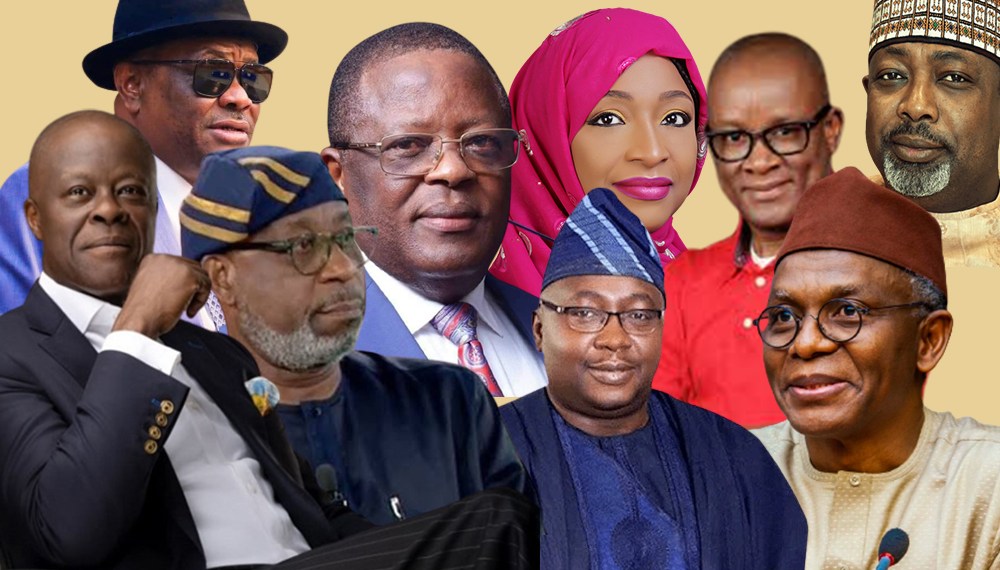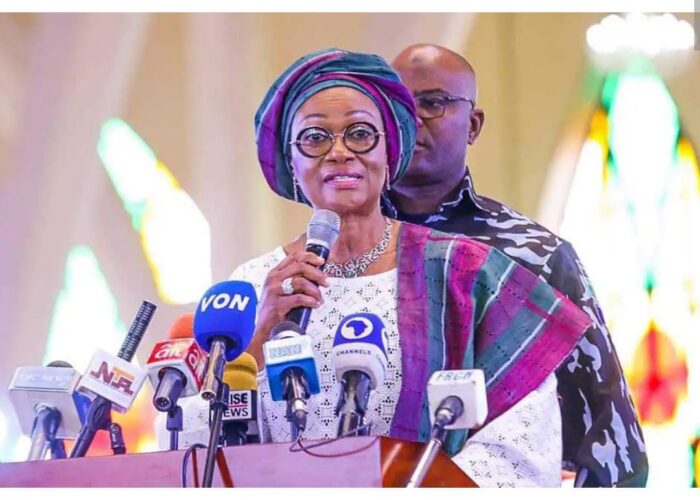Africa
Does “Cool Money” From Politics Make Politicians More Hardworking Than Other Nigerians?, by Isaac Asabor

In Nigeria, the allure of politics is undeniable. It offers power, influence, and, quite often, a direct route to immense wealth. This “cool money”, as it is often called, seems to come easily to those in political positions. From lucrative contracts, salaries, and allowances to political connections that open doors to more financial opportunities, the gains are obvious. However, this reality has led to a critical question: “Does making cool money from politics truly make Nigerian politicians more hardworking than other citizens?” Or has the allure of easy wealth blurred their perspective on the value of genuine hard work?
Politics in Nigeria is frequently seen as a fast track to financial success. Politicians, once elected or appointed, often enjoy the benefits of inflated allowances, hefty salaries, and control over national resources. The National Assembly, for instance, has been repeatedly criticized for its opaque pay structure, with many speculating that lawmakers earn far more than the average Nigerian can even dream of.

This financial reward system makes it tempting to view politicians as “successful” or “hardworking” simply because of their access to this wealth. For the everyday Nigerian struggling to make ends meet, the perception often forms that politicians are reaping rewards not necessarily from their hard work but from the privileges of their position. The question of whether this money was earned through genuine labor or through systemic advantages remains.
There have been instances where political elites, through their speeches or actions, indirectly imply that the average Nigerian is lazy. A notable example is President Muhammadu Buhari’s 2018 comment at a Commonwealth Business Forum, where he stated that “many Nigerian youths just want to sit and do nothing because Nigeria is an oil-rich nation.”
In a similar vein, Tinubu’s wife, Oluremi Tinubu, recently mocked ordinary Nigerians by implying that their struggles were due to laziness, using the phrase “No food for lazyman.” Her remarks, made in a tone that many found dismissive, seemed to downplay the genuine economic hardship and widespread unemployment faced by the masses. Instead of acknowledging the structural challenges and governance issues contributing to poverty, she shifted the blame onto the people themselves, sparking outrage and reinforcing the perception that Nigeria’s political elites are disconnected from the everyday realities of its citizens.
This perception of the general public as “lazy” often comes from politicians who, ironically, are seen as the beneficiaries of a system that rewards them without requiring proportional effort. Some politicians may genuinely believe that they work harder than the average Nigerian, because of the grueling nature of campaigns or the time-consuming nature of governance. But this interpretation raises several questions: Is sitting through legislative sessions or heading ministries truly harder than the back-breaking labor of farming, trading, or running small businesses in an unstable economy?
For the average Nigerian, hard work takes on a different meaning entirely. Farmers work long hours under the hot sun, traders spend their days hustling in chaotic markets, and small business owners face endless challenges from inflation, poor infrastructure, and erratic government policies. Despite their immense efforts, the rewards are often meager and uncertain. Yet, these Nigerians continue to work because they must, and there are no fat allowances or political connections to fall back on.

In this context, the claim that politicians are somehow more hardworking than the average Nigerian rings hollow. While the processes of governance and legislation are undoubtedly demanding, they are not comparable to the labor-intensive, physically exhausting, and financially unstable conditions faced by millions of Nigerians daily.
There is another angle to consider in this debate: the distinction between hard work and public service. Ideally, politicians should not only work hard but also serve the public. The concept of public service involves a sense of sacrifice, of putting the needs of the people above personal gain. Yet, in Nigeria, it sometimes seems that the goal of politics is not public service but personal enrichment.
Many politicians enter politics already wealthy or connected, and they often leave with even more wealth, regardless of the quality of their service. The irony is that politicians are compensated well for their “hard work” in a system that continues to underpay doctors, teachers, and public sector workers, many of whom are far more essential to the day-to-day functioning of society. The question arises: “Is it truly “hard work” if the primary outcome is personal gain, rather than public benefit?
Another critical factor in this discussion is the widening gap between politicians and the public. Many politicians, especially at the federal level, lead lifestyles that are vastly different from those of their constituents. With luxury homes, foreign education for their children, and frequent trips abroad, it is easy for them to lose touch with the struggles of the ordinary Nigerian.
This disconnect often fuels the perception that everyday Nigerians are “lazy” or unwilling to work as hard as the political class. But in reality, it is the system that creates the disparity, not the people. When politicians enjoy a life of privilege while the masses toil under economic hardship, it becomes easy for those in power to underestimate the laborious efforts of the public.

It is impossible to discuss the wealth of Nigerian politicians without addressing corruption. While not every politician is corrupt, the country’s political system has been plagued by mismanagement, embezzlement, and the misuse of public funds. Corruption allows some politicians to amass wealth with very little actual effort, which only deepens the divide between the political elite and the general public.
Many Nigerians see this corruption as proof that the “hard work” of politicians is not what it seems. It is one thing to attend sessions or sign contracts; it is quite another to profit from kickbacks, inflated contracts, or diverted funds meant for development projects. When “cool money” is made through such channels, can it really be said that politicians are working harder than the average Nigerian?
At the heart of this debate is a fundamental misunderstanding of what it means to work hard. Politics is indeed demanding, but it is not inherently harder than the efforts of millions of Nigerians who work tirelessly every day with little to show for it. The wealth that politicians accumulate often comes from a system designed to reward them, rather than from the sweat of their brow.
If politicians truly believe they are working harder than other Nigerians, it may be time for them to step out of their comfortable enclaves and experience the daily grind of the average citizen. Perhaps then, they would see that the real hard work in Nigeria lies in the everyday struggles of the people, not in the halls of power.
In the end, it is clear that “cool money” from politics does not necessarily reflect harder work but instead highlights the deep systemic inequalities that have shaped Nigeria’s political and economic landscape. The challenge moving forward is to bridge this gap and foster a political culture rooted in genuine public service and hard work for the collective good, rather than individual gain.



























